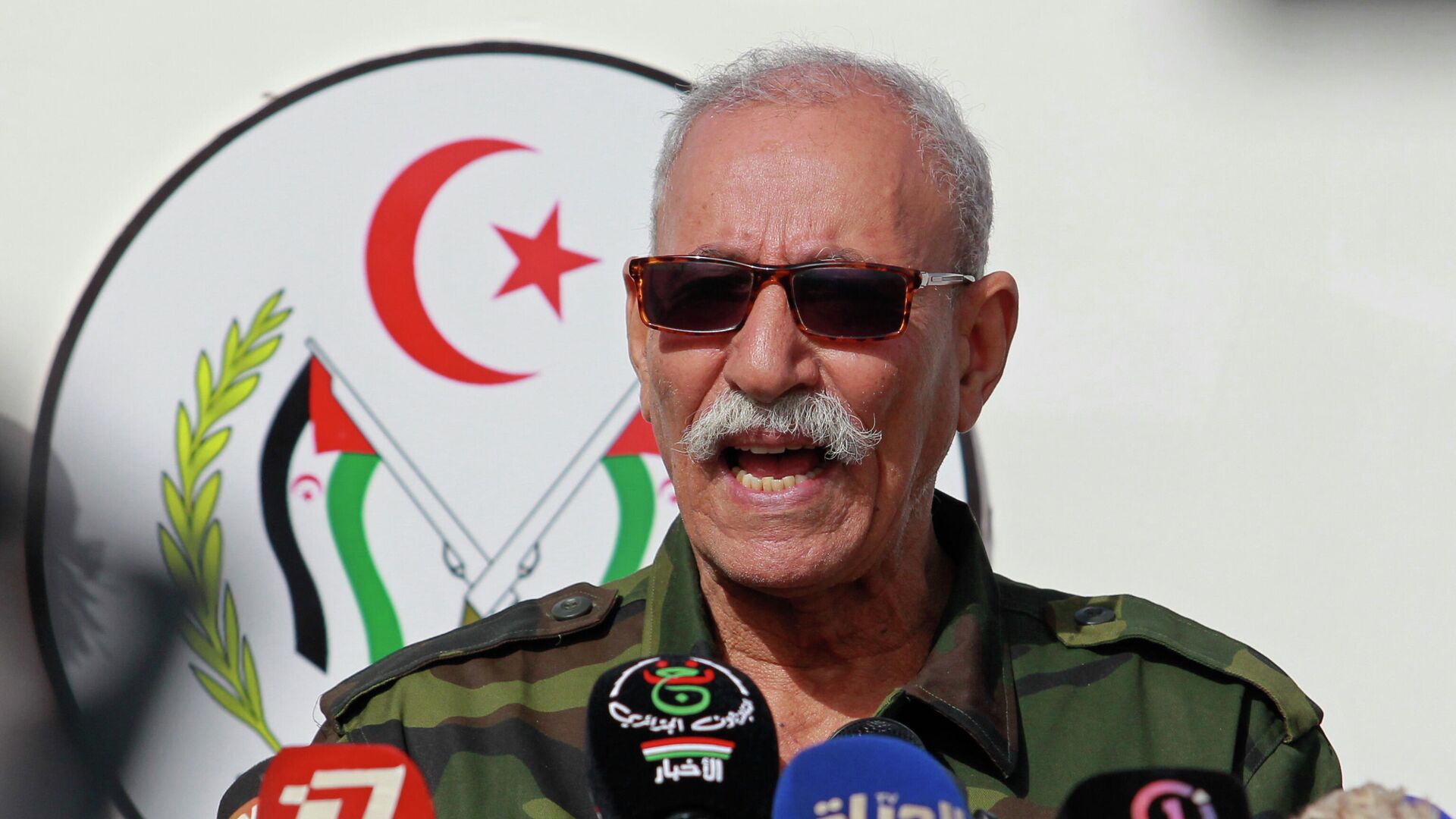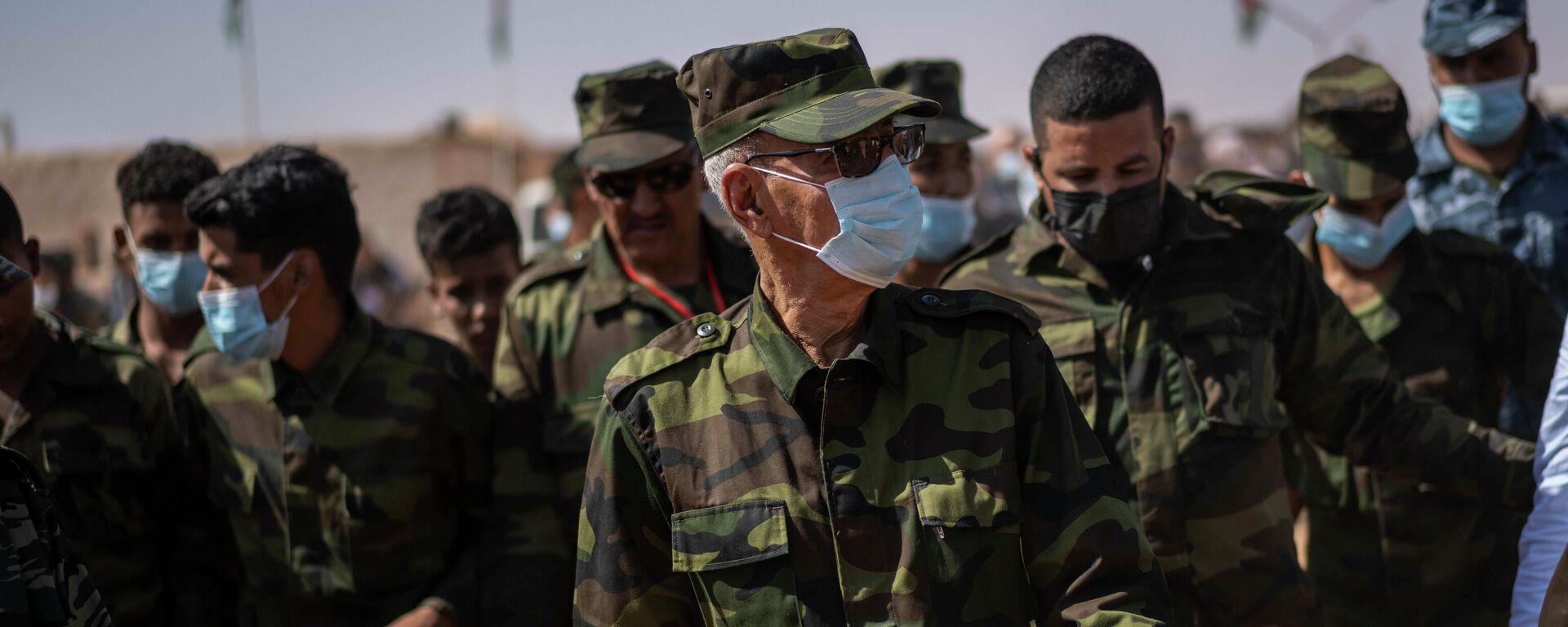Polisario’s Brahim Ghali Vows to Intensify ‘Armed Struggles’ With Morocco After Winning Reelection

© AP Photo / Fateh Guidoum
Subscribe
The Polisario Front announced the end of a 20-year ceasefire in November 2020 after Moroccan forces stormed a protest encampment on Western Sahara’s border with Mauritania. The United Nations has long promised to oversee an independence referendum in the territory.
Polisario chairman Brahim Ghali, 73, told French media on Sunday that the liberation front would intensify the “armed struggle” to free Western Sahara from Moroccan control.
He also called on Spain to “rectify” its 2022 decision to back Morocco’s claim over the territory and “align with international legality.” Madrid had previously been a staunch supporter of Polisario, including treating Ghali for COVID-19 in 2021.
Ghali’s comments came three days after the 16th Congress of the Polisario Front reelected Ghali to another three-year term as its chairman. Ghali defeated his rival, Bashir Mustafa, by a vote of 69% to 31% at the remote Dakhla refugee camp across the border in Algeria.
After being a Spanish colony for nearly a century, Spanish forces abandoned the territory in 1975 and Morocco and Mauritania both attempted to claim the territory as their own. However, Polisario, formed two years earlier as part of the struggle against Spanish colonialism, declared a Saharawi Arab Democratic Republic (SADR) in the territory and took up arms against both nations. While Mauritanian forces were driven from the country, the Moroccans persisted, constructing a vast sand berm that divided the territory as thousands of Moroccans settled along the coast.

18 October 2021, 23:41 GMT
By 1991, the two sides agreed to a ceasefire mediated by the United Nations, which also recognized Polisario as the legitimate representative of the Saharawi people and promised to oversee a referendum on independence for Western Sahara. That referendum has never occurred.
"We entered a process in 1991, believing that it was a just world, a world that respects its commitments, a world that respects international legality," Ghali told French media on Sunday.
The ceasefire was declared dead in November 2020, weeks after Moroccan troops forcibly disbanded a protest encampment at a newly completed border crossing into Mauritania. Saharawi activists said the crossing would allow the illegal exporting of natural resources from the land, which were taken without Saharawi consent.
While Moroccan repression of Saharawi dissidents had always been strong, it greatly intensified after the war reignited, with Saharawi human rights defenders and politicians telling Sputnik the crackdown had created a “media black hole” about news in the territory.
Then, in December 2020, the US announced it was dropping its support for the UN-led referendum and supporting Morocco’s claim over Western Sahara as part of a deal for Morocco to recognize Israel and normalize relations. Since then, Israel has cooperated with Morocco on defense and security matters, including selling Rabat the Pegasus spyware to spy on Saharawi and Moroccan activists and journalists and so-called kamikaze drones to use against Polisario forces.

